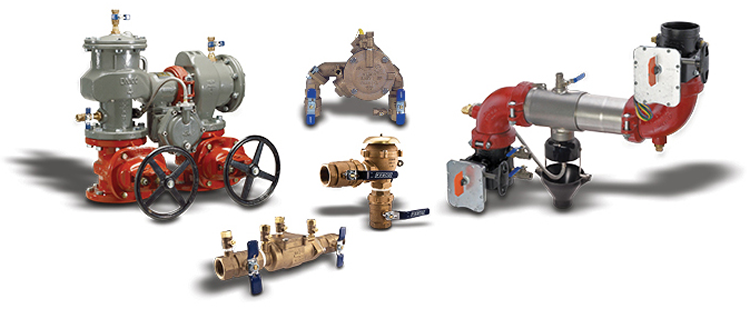Backflow Prevention Program

What is it ?
Backflow is the undesirable reversal of the flow of water or mixtures of water and other substances back into the public water system. Backflow is caused by a drop in water pressure (i.e., while fire fighters battle a blaze or while crews are repairing a water main). A backflow preventer is a mechanical device that acts as a check valve to prevent used water from re-entering and potentially contaminating your drinking water.
Why do I need a backflow preventer ?
Safety is a big issue! If water that gets sucked back into your water system is contaminated by weed killer, fertilizer, or pesticides, it can make you very sick. Chemicals and insecticides in your drinking water can cause several reactions. Reports from across the nation have included nausea, diarrhea, blisters, burning of the mouth and throat, anti-freeze poisoning, drowsiness, confusion, dizziness, and unconsciousness.
Also, backflow preventers are now required by the City of Grand Island City Code Chapter 35, Sections 44-54. Backflow preventers must be installed on your home and business sprinkler systems if they are tied into your domestic water supply. They also need to be installed on fire sprinkler systems, commercial facilities where chemicals are used, boiler systems, and other systems where water could become contaminated.
What should I do to protect myself ?
Be aware of situations where your home water supply does or could come in contact with non-potable liquid. Don't let a cross connection be made if another, safer, way is possible. If cross connecting cannot be avoided, use the proper plumbing device to prevent any liquid from backflowing into the potable water system. For example, a hose bib (outside faucet) vacuum breaker is a simple, inexpensive plumbing device you attach to the faucet before attaching the hose. Other situations require a special backflow prevention device that will isolate potable water from potential contamination.
To protect the quality of tap water in your home NEVER allow hoses to be submerged in sinks, pools, chemical mixing tanks, etc. Be sure your toilet flush valves have an anti-siphon device. Make sure any plumbing work done at your home is by a licensed plumber. Last, but not least, winterize your backflow device correctly to prevent costly water leaks and damage next spring.
For more information about backflow prevention, contact us here.
